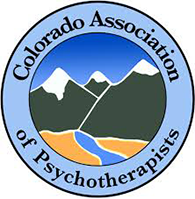[fusion_builder_container hundred_percent=”no” equal_height_columns=”no” menu_anchor=”” hide_on_mobile=”small-visibility,medium-visibility,large-visibility” class=”” id=”” background_color=”” background_image=”” background_position=”center center” background_repeat=”no-repeat” fade=”no” background_parallax=”none” parallax_speed=”0.3″ video_mp4=”” video_webm=”” video_ogv=”” video_url=”” video_aspect_ratio=”16:9″ video_loop=”yes” video_mute=”yes” overlay_color=”” video_preview_image=”” border_size=”” border_color=”” border_style=”solid” padding_top=”” padding_bottom=”” padding_left=”” padding_right=””][fusion_builder_row][fusion_builder_column type=”1_1″ layout=”1_1″ background_position=”left top” background_color=”” border_size=”” border_color=”” border_style=”solid” border_position=”all” spacing=”yes” background_image=”” background_repeat=”no-repeat” padding_top=”” padding_right=”” padding_bottom=”” padding_left=”” margin_top=”0px” margin_bottom=”0px” class=”” id=”” animation_type=”” animation_speed=”0.3″ animation_direction=”left” hide_on_mobile=”small-visibility,medium-visibility,large-visibility” center_content=”no” last=”no” min_height=”” hover_type=”none” link=””][fusion_text]When I’m first getting acquainted with a client, the subject of abuse often comes up.
When I ask, “Do you feel you are being abused?”, often I hear, “Oh, no, well . . . not physically.”
So let’s clarify what is abuse.
Healthy Relationships Involve Respect and Trust
What Is Abuse?
Abuse can occur in any relationship, at any age, to any gender, in any setting.
Abuse can be physical, mental, verbal, emotional, sexual, financial, or spiritual.
According to the Anxiety Centre statistic –
“Untreated persons of sexual, physical, or emotional abuse may struggle with:
- Controlling behavior in their relationships & environment
- An inability trust anyone, including God, which interferes with their ability to become saved
- Low self-esteem that interferes with their ability to receive love messages from others and God
- Inappropriate social behavior
- Isolation & loneliness
- Poor boundary identification
- Unrealistic expectations of others
- Perpetration of abuse unto the next generation
- Anxiety and Panic attacks
- Feelings of guilt, shame, and responsibility for what happened
- Perfectionism
- Fear & discomfort in new situations and/or around unfamiliar people
- Feelings of being marked, different, unacceptable, abnormal, and dirty
- A belief that they are stupid and incapable of achieving success
- Sabotage their own efforts to succeed
- A belief they are unacceptable to God and going to hell no matter what they do
- An inability to make decisions or trust their own opinions; look to others to affirm them in their decisions or make their decisions for them
- Authority
- Ritualistic behavior, depression, eating disorders, obesity, and dizziness or numbness, feelings of impending doom
- Suicidal ideation or behavior, emotional shutdown, blocked or repressed memory, splitting of personality, self-injury such as slashing of body
- Drug & Alcohol abuse
- An abusive partner
- Learned passivity and avoidance of confrontation
- A partner with a substance abuse problem
- Unintended pregnancy
- Promiscuity or Frigidity
- Sexual dysfunction
- Flashbacks
- Preference for rough sex, bondage, and/or same sex partner
- Chronic head, face, or pelvic pain, musculoskeletal complaints, gastrointestinal distress or symptoms, and asthma or other respiratory ailments
- Poor or no parenting skills, leading to child abuse
- Anger management difficulties and aggressive behavior”
Physical abuse means any form of violence such as hitting, punching, pulling hair, kicking, slapping, shaking, or hurtful constraint. Also includes neglect. It is painful.
Mental abuse is any attempt to control you by devaluing your thoughts, choices, or behaviors. This mind control leaves you doubting yourself; feeling like you’re going crazy. It is isolating.
Emotional abuse is a repetitive pattern of teasing, bullying, humiliating, intimidating, threatening, betraying, or criticizing that leaves invisible emotional scars. It results in pain, fear, shame, and guilt. It is dis empowering.
Sexual abuse is when anyone asks or demands you participate physically or sexually in a way that you are not comfortable. Sexual abuse is controlling, violating, humiliating, and degrading. It is shaming.
Financial abuse is when someone takes advantage of, manipulates from you, or controls you through your financial needs or assets.
Spiritual abuse is when you are being taught that you are separated from the love of God or when you are asked to participate in activities contrary to your value system.
Signs That Someone You Know (Including Yourself) is Being Abused
- Unexplained cuts, burns, bruises, or broken bones
- Excessive guilt or shame for no apparent reason
- Secrecy or withdrawal from friends and family
- Avoidance of social interaction (isolation)
- Sudden changes in behavior or performance (work or school)
- Physical or medical problems brought to parents’ attention is ignored
- Difficulty concentrating or focusing
- Is overly passive or compliant
- Sensitivity to noise or anxiety in silence
- Avoidance of home
- Wanting to run away
- Thoughts of suicide
How to Stop Abuse
(1) Recognize that you are being abused or used. Stop minimizing, rationalizing, and protecting. Stop being the hero. Stop being the victim. Stop the toxicity.
(2) Seek help and safety. Statistically, more people are hurt or killed in domestic disputes when leaving their relationship or in the first two months after leaving, than at any other time. Plan a strategy. Get support – a trusted friend, trained professional, teacher, counselor, clergyperson, or doctor that can provide resources and intervention, as needed.
(3) Get clear – you deserve to be treated with respect. Anything less breeds guilt, resentment, obligation, fear, and entrapment. It is disempowering. Respect can be learned. Learn to respect yourself – don’t expect others to respect you, if you don’t respect yourself.
(4) Set boundaries. If you’ve allowed yourself to be taken advantage of, mistreated, or harmed, it’s time to say to yourself, “This isn’t working for me.” Learn when to say, “No.” to others. Learn when to say, “Yes.” to yourself.
(5) Stake your claim. Be clear with those around you about your expectations. Say something like, “If you continue to (scream at me), I will need to (leave the room until we can talk calmly).”
(6) Get professional help to move through the pain, trauma, and loss. Discover what you need to know to live abuse-free. Do the work necessary to restore your sense of meaning, value, and competence.
Resource for children:
http://www.childwelfare.gov/pubs/factsheets/signs.cfm
Resource for teen:
http://kidshealth.org/teen/your_mind/relationships/abuse.html
Resource for adults:
http://www.drirene.com/verbal1.htm
Anxiety Centre Statistics:
https://www.anxietycentre.com/abuse-statistics-information.shtml
[/fusion_text][/fusion_builder_column][/fusion_builder_row][/fusion_builder_container]


